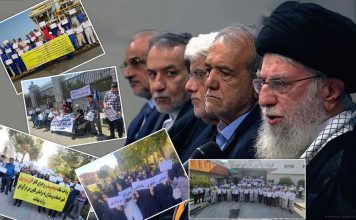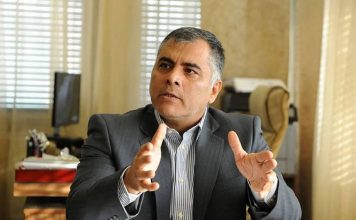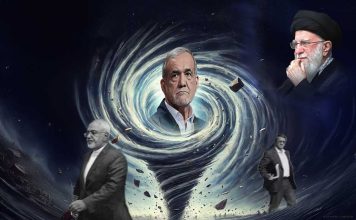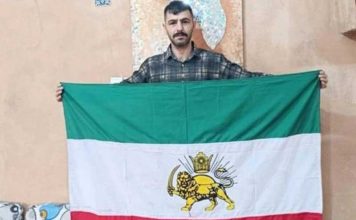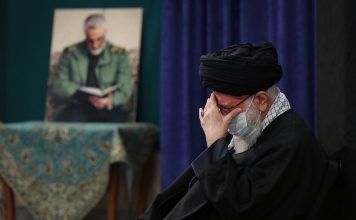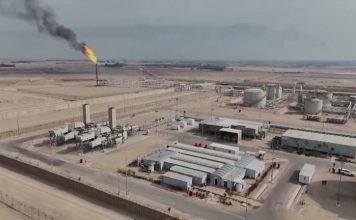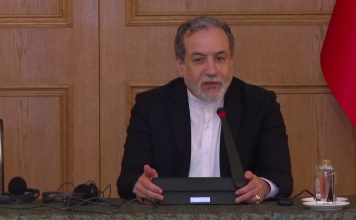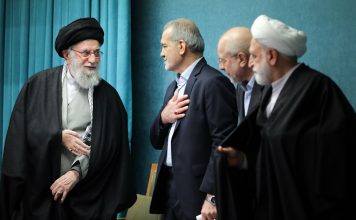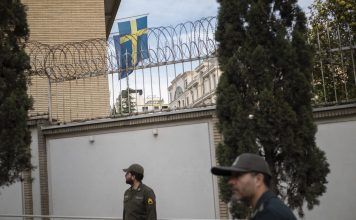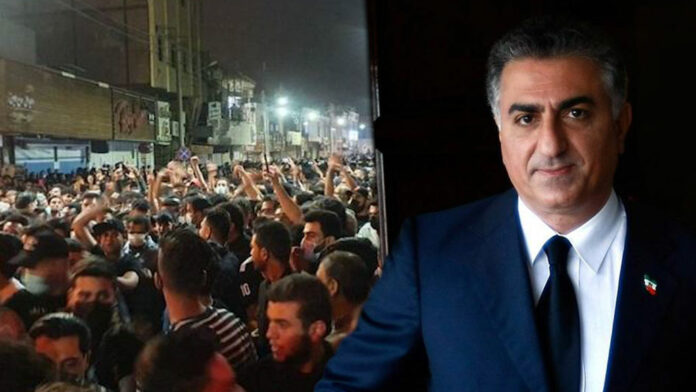
By Kayhan Life Staff
Prince Reza Pahlavi and Israel’s Minister of Diaspora Affairs Amichai Chikli met and held talks on June 6 in the US. The discussions focused on the significance of “restoring the historic alliance between Iran and Israel” and working towards achieving “sustainable peace in the region.” Chikli is also the minister in charge of combating anti-Semitism.
Writing on X (formerly known as Twitter), Prince Reza said: “I was pleased to meet with Minister Amichai Chikli to discuss the solidarity between the Iranian and Jewish diasporas. This Biblical relationship is not merely a relic of the past. It can inspire a new era of lasting peace for our region, including Iranians, Israelis, and Arabs.”
I was pleased to meet with Minister @AmichaiChikli to discuss the solidarity between the Iranian and Jewish diasporas. This Biblical relationship is not merely a relic of the past. It can inspire a new era of lasting peace for our region including Iranians, Israelis, and Arabs. https://t.co/6BnHdvcXF5
— Reza Pahlavi (@PahlaviReza) June 6, 2024
A post on X by Chikli read: “It was an honor to meet Crown Prince, the true representative of the great Iranian people. I pray for the day that his leadership brings peace and prosperity to Iran and the entire Middle East and restores the historical alliance between Iran and Israel.”
The meeting between Prince Reza and Chikli has sparked significant interest among social media users, who view it as a deliberate message directed towards Tehran. This message is particularly poignant given the current situation where the Iranian regime is openly supporting the antisemitic campaign of Islamist extremists. It can influence the policies of Western governments regarding the Iranian people’s struggle for freedom and democracy.
These close ties between Iranian pro-democracy and patriotic opposition forces and influential international actors, particularly Israel, pose a significant challenge for the Islamic Republic amidst a range of internal and international crises it faces, especially given that the existence and security of Israel as a member state of the UN is the red lines for Europe and the U.S.
On the same day as Reza Pahlavi’s meeting with the Israeli minister, and against a backdrop of escalating tensions in the Middle East, the International Atomic Energy Agency (IAEA) Board of Governors passed a resolution censuring Iran for its failure to cooperate with its inspectors.
Tehran swiftly criticized the IAEA’s decision to reprimand Iran for the lack of transparency in its nuclear program, asserting that the resolution was founded on “fabricated information and documents provided by the malicious Israeli regime.”
After Hamas’ terrorist attack on Israel on Oct. 7, named “Operation Al-Aqsa Deluge,” the conflict between the Islamic Republic and Israel, often known as the “Shadow War,” has transitioned into a complex and multifaceted hybrid warfare.
Since the start of Israel’s military operation in Gaza against Hamas, the Islamic Republic has seized every chance to fan the flames of antisemitism and bolster opposition to the left while rallying public support for the “Palestinian Cause” in Europe and America.
Israel’s military campaign aimed at eliminating several senior commanders of the Islamic Revolutionary Guards Corps’ Qods Force (IRGC-QF) in Syria has been a strategic move to disrupt Iran’s support of Hamas and Lebanese Hezbollah’s operations against Israel. These IRGC-QF commanders were crucial figures in facilitating and coordinating activities that posed a threat to Israel’s security.
Prince Reza Pahlavi Receives ‘Outspoken’ Award at Spirit of Lincoln Gala in California
The successful targeting of these IRGC-QF commanders has dealt a significant blow to Iran’s regional ambitions and its proxy networks. In response to Israel’s actions, the Iranian government has escalated its crackdown on political and civil activists, as well as dissidents inside Iran. This retaliation has included arbitrary arrests based on fabricated charges, such as alleged ties to Israel.
Among those recently arrested was Hossein Shanbehzadeh, a translator, author, and editor of literary works in Iran, who received attention when he added a period (or fullstop) to an unfinished sentence in one of Iran’s Supreme Leader Ayatollah Ali Khamenei’s posts on social media. This event is significant because adding a period to an unfinished sentence is considered an act of asserting finality or completion. In this context, it can be interpreted as an indirect challenge to the legitimacy of the Islamic Republic and its leader.
Following Shanbehzadeh’s arrest, the period symbol, typically indicating the end, has transformed into a political statement and a form of psychological warfare against the Iranian government. Notably, Garry Kasparov, the former world chess champion and vocal critic of Russian President Vladimir Putin, also reacted to Hossein Shanbehzadeh’s arrest by including a dot in a post on X.
On June 6, after Iran denounced the IAEA’s resolution and Western nations, a post in Hebrew on Khamenei’s X account said: “We are witnessing the beginning of the end of the Zionist entity which is gradually melting and disappearing before the eyes of the world.”
A recent trend on social media involves users placing dots under posts made by Khamenei on X. Minister Chikli also added a dot under the same post and shared a photograph of his meeting with Prince Reza. Addressing Khamenei in such a manner carries significant meaning and has become a common message in his recent posts.
Khamenei delivered a speech on the anniversary of the death of Ayatollah Ruhollah Khomeini, the founder of the Islamic Republic, on June 3, in which he said: “The remarkable Operation Al-Aqsa Deluge has set the Zionist regime on a path to destruction by thwarting the enemies’ extensive plan to dominate the region and the Islamic world. Given the faith and steadfastness of the people of Gaza, the occupying regime is crumbling before the eyes of the world.”
Khamenei was referencing the “Abraham Accord,” a bilateral agreement brokered by the U.S. on Arab–Israeli normalization signed between Israel and the United Arab Emirates and between Israel and Bahrain on Sept. 15, 2020.
Some analysts suggest Iran may be gearing up for operations like the Oct. 7 attack on Israel. Also, security agencies from various European governments, such as Sweden and Belgium, have issued reports regarding conspiracies and threats posed by agents of the Islamic Republic against Jews and Israeli embassies. This situation indicates that the tensions in the Middle East have spilled over into Europe, raising concerns about a potential escalation.
In April 2023, Prince Reza made history as the first prominent Iranian politician to visit Israel, carrying a message of peace, security, and coexistence. During his visit, he met and held talks with senior Israeli officials.
A week before meeting with Chikli, Prince Reza gave an interview to the Italian news agency Adnkronos, in which he said, “The path to peace between Israelis and Palestinians passes through Tehran,” adding that “there will not be peace in the region if the Islamic Republic remains in power.”

